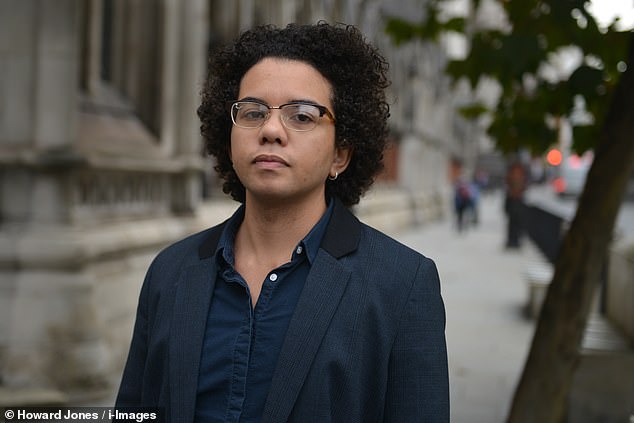Children cannot properly grasp the ‘life-altering’ implications of taking puberty blockers and cross-sex hormones, a landmark High Court case has heard.
Keira Bell, 23, who took puberty blockers when she was 16, today spoke of her regret after making the ‘brash decision’ to undergo treatment.
The IT worker from Manchester suffered from gender dysphoria as a teenager and was also prescribed testosterone, which left her with a deep voice and possibly infertile, and had a double mastectomy to remove her breasts.
But last year she quit taking cross-sex hormones and realised she had gone down the ‘wrong path’ and began ‘detransitioning’ back to a female.
Ms Bell accuses Britain’s biggest gender clinic of failing to carry out a proper psychiatric assessment before pressing ahead with the treatment.

She and the mother of a 16-year-old autistic girl, who is on the waiting list for such gender identity development services (GIDS), are now taking legal action against the Tavistock and Portman NHS Trust.
Their legal challenge aims to make it unlawful for children who wish to undergo gender reassignment to be prescribed hormone blockers without an order from a court ruling such treatment is in their ‘best interests’.
As the court battle opened in London today, Ms Bell said in a witness statement: ‘I made a brash decision as a teenager, as a lot of teenagers do, trying to find confidence and happiness, except now the rest of my life will be negatively affected.’
She added: ‘Transition was a very temporary, superficial fix for a very complex identity issue.’
Lawyers representing Ms Bell and the mother, known as Mrs A, told the judges that children were ‘not capable of properly understanding the nature and effects of hormone blockers’
They argue that there is ‘a very high likelihood’ that children who start taking hormone blockers will later begin taking cross-sex hormones, which they say cause ‘irreversible changes’.
Ms Bell has crowdfunded over £43,000 for her legal challenge against Tavistock.
On her donation page, she writes: ‘In my tormented state of mind I was not able to identify how incredibly destructive transition was.
‘As an adult I now realise that medical transition was unnecessary and something I wish I had avoided.
‘However I have now been left with the life-long consequences of medical treatment for gender/sex dysphoria (including a deep voice, facial hair and no breasts).’





















